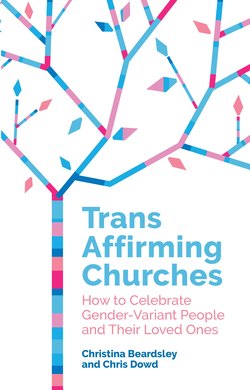Читать книгу Trans Affirming Churches - Chris Dowd - Страница 8
На сайте Литреса книга снята с продажи.
A vicar’s story
ОглавлениеBack in 2000 the Gender Trust, at that time the largest UK charity serving transgender people, approached Tina to write some pastoral guidelines about trans people aimed at clergy and congregations. The Trust’s invitation came in response to a request for guidance of this kind from a vicar who had got to know a parishioner ‘simply as a man with problems’. As the pastoral relationship developed, the man explained that he had transitioned, and that he was ‘seeking reassurance that God accepts him’. An evangelical minister, the vicar described this encounter as:
something of a revelation… Hearing his story has moved me…some approaches by certain Christian organisations [have] been decidedly unhelpful, judgemental and even cruel. The person needs support and help to enable them to be the person God has made them…this chap has achieved a stability because I have shown him that God loves him as he is. It is no longer an issue for him and he is simply getting on with his life. I am enormously indebted to him for what he has taught me.
Religious professionals are often expected to ‘have all the answers’ and to pretend that they do even when they don’t! Pastoral and spiritual care based on ignorance is likely to be harmful and is potentially dangerous. Ministerial training can’t cover every pastoral scenario and the needs of transgender people are unlikely to have been addressed. Including trans people’s care in the curricula for ministerial formation would greatly help to increase awareness, deepen knowledge and improve trans people’s experience of church life (see a suggested syllabus in Appendix A).
As the vicar noted, based only on a theology often rooted in the Genesis creation narratives, but without exploring the experience of trans Christians and their loved ones, some church leaders or bodies adopt the default position ‘this is wrong’, or fall back on theologies such as Natural Law. The impact on the trans person is usually violent and potentially abusive, verbally and emotionally. Faced with a reality that he did not previously know, this minister was open to listening and learning from the trans person and to having a dialogue with him. The outcome was extraordinary. The encounter was nothing short of a ‘revelation’. The vicar was able to recognise God at work in this trans man’s life and to reassure him of God’s love for him. There was mutuality to this encounter: the minister both receiving God’s grace from the trans man in front of him and ministering that grace to him in return.
Learning points from a vicar’s story
• Some Christian approaches to trans people are harmful – we’ll say more about them in later chapters – and should be avoided.
• Listening to a trans person – or their loved one – telling their story can be very moving and lead to new learning and even, in some cases, ‘a revelation’.
• Being trans is not ungodly – again we’ll say much more about this later in the book. At this stage it is enough just to note that your role is to reassure the person that they are loved by God as they are (just as we would reassure someone who is not trans).
